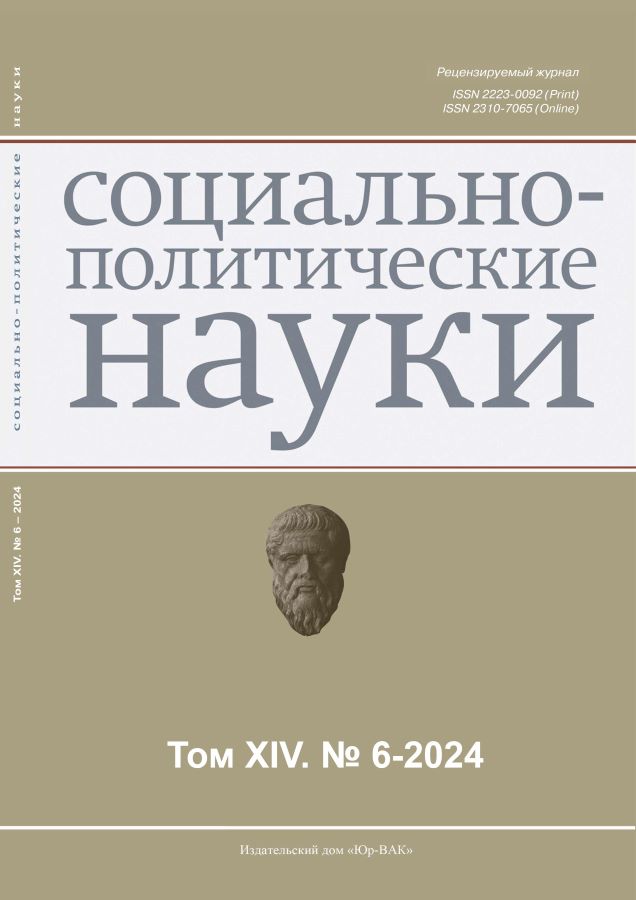Policy of the BRICS countries in the field of digitalization of education: digitalization as the basis of modern dialogue of cultures
- Authors: Kozina Y.P.1, Bogdanova N.V.1
-
Affiliations:
- Peter the Great St. Petersburg Polytechnic University
- Issue: Vol 14, No 6 (2024)
- Pages: 114-120
- Section: International Relations, Global and Regional Studies
- URL: https://journals.eco-vector.com/2223-0092/article/view/654066
- DOI: https://doi.org/10.33693/2223-0092-2024-14-6-114-120
- EDN: https://elibrary.ru/DYQIGN
- ID: 654066
Cite item
Abstract
Research objective. This article is devoted to the digitalization of education in the BRICS countries. It is highlighted that digitalization at the present stage of the development of our society has affected various spheres of public life, and the spheres of education and culture are no exceptions. This trend reflects the relevance of this work. The purpose of this work is to consider the relationship between the digitalization of education and changes in the parameters of the dialogue of cultures in the digital era as both digitalization and education are closely intertwined with the concept of dialogue of cultures in the modern world.
Methodology. The basis of this work is represented by the methods of analysis of scientific literature, analysis of the documents of the BRICS countries on the digitalization of education, and synthesis is used to bring together fragmented information from various sources.
Findings. Within the framework of this article, various stable trends associated with the process of transformation of education in the digital era are presented. Moreover, the strategies of the BRICS countries in the field of digitalization of education are analyzed. The advantages and disadvantages of this process are noted from the perspective of intensifying the dialogue of cultures.
Full Text
About the authors
Yulia P. Kozina
Peter the Great St. Petersburg Polytechnic University
Author for correspondence.
Email: j_kozina99@mail.ru
ORCID iD: 0000-0003-0386-3066
SPIN-code: 3712-6103
Scopus Author ID: 57501851300
аспирант, Высшая школа международных отношений, Гуманитарный институт
Russian Federation, St. PetersburgNadezhda V. Bogdanova
Peter the Great St. Petersburg Polytechnic University
Email: nvbogdanova.imop@mail.ru
ORCID iD: 0000-0002-8604-7306
SPIN-code: 8701-6177
Cand. Sci. (Pedag.), associate professor, International Relations Higher School, Humanitarian Institute
Russian Federation, St. PetersburgReferences
- Artanovsky S.N. Historical unity of humanity and mutual influence of cultures. Leningrad, 1967. 268 p.
- Vereshchagin E.M., Kostomarov V.G. Language and culture. Moscow, 1990. 246 р.
- Grushevitskaya T.G., Popkov V.D., Sadokhin A.P. Fundamentals of intercultural communication. Moscow, 2003. 352 р. ISBN: 5-238-00359-5.
- Sergeantova I.B. Intercultural dialogue, media culture and modern sociocultural situation. Psychology in Economics and Management. 2011. No. 1. Рp. 106–113. (In Rus.)
- Strelkova I.A. Current aspects of digitalization of Russian education. Social Innovation and Social Sciences. 2021. No. 1. Рp. 96–106. (In Rus.)
- Hamitov R.M. Digitalization of education and its aspects. Modern Problems of Science and Education. 2021. No. 3. (In Rus.). doi: 10.17513/spno.30771
- Chukwuere J. From decolonisation to digitalisation of education in South Africa. International Scientific Journal. 2017. No. 73. Рp. 232–241. doi: 10.21506/j.ponte.2017.12.15.
- Fryer L.K., Shum A., Nakao K. Motivation to learn in open, distance, and digital education. In: Handbook of open, distance and digital education. 2022. Рp. 1–17. doi: 10.1007/978-981-19-0351-9_52-1.
- Pletyago T., Antonova S. BRICS in creating digital educational environments: Social and legal aspects of “a new normal”. BRICS Law Journal. 2023. No. 2. Рp. 101–121. doi: 10.21684/2412-2343-2023-10-2-101-122.
Supplementary files









